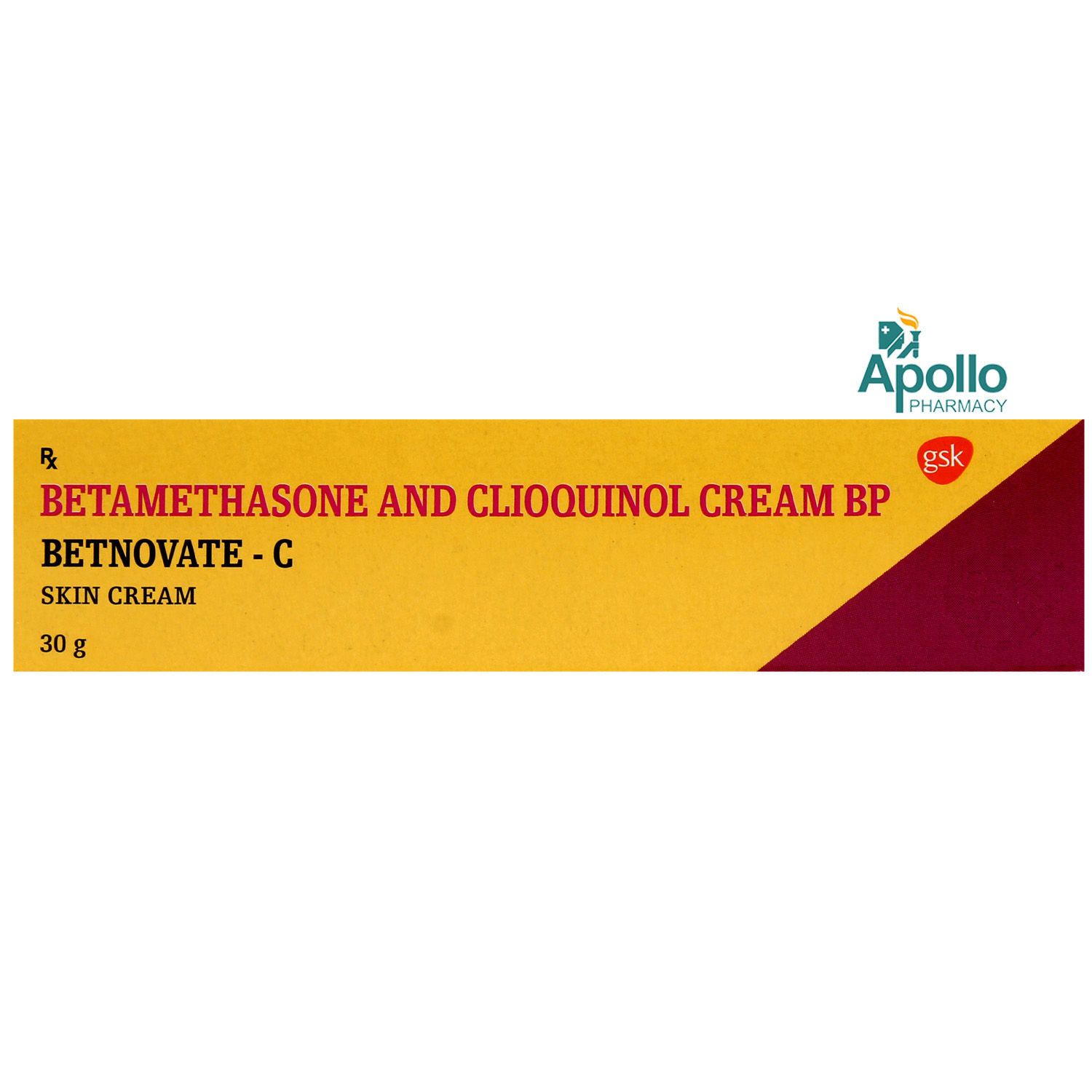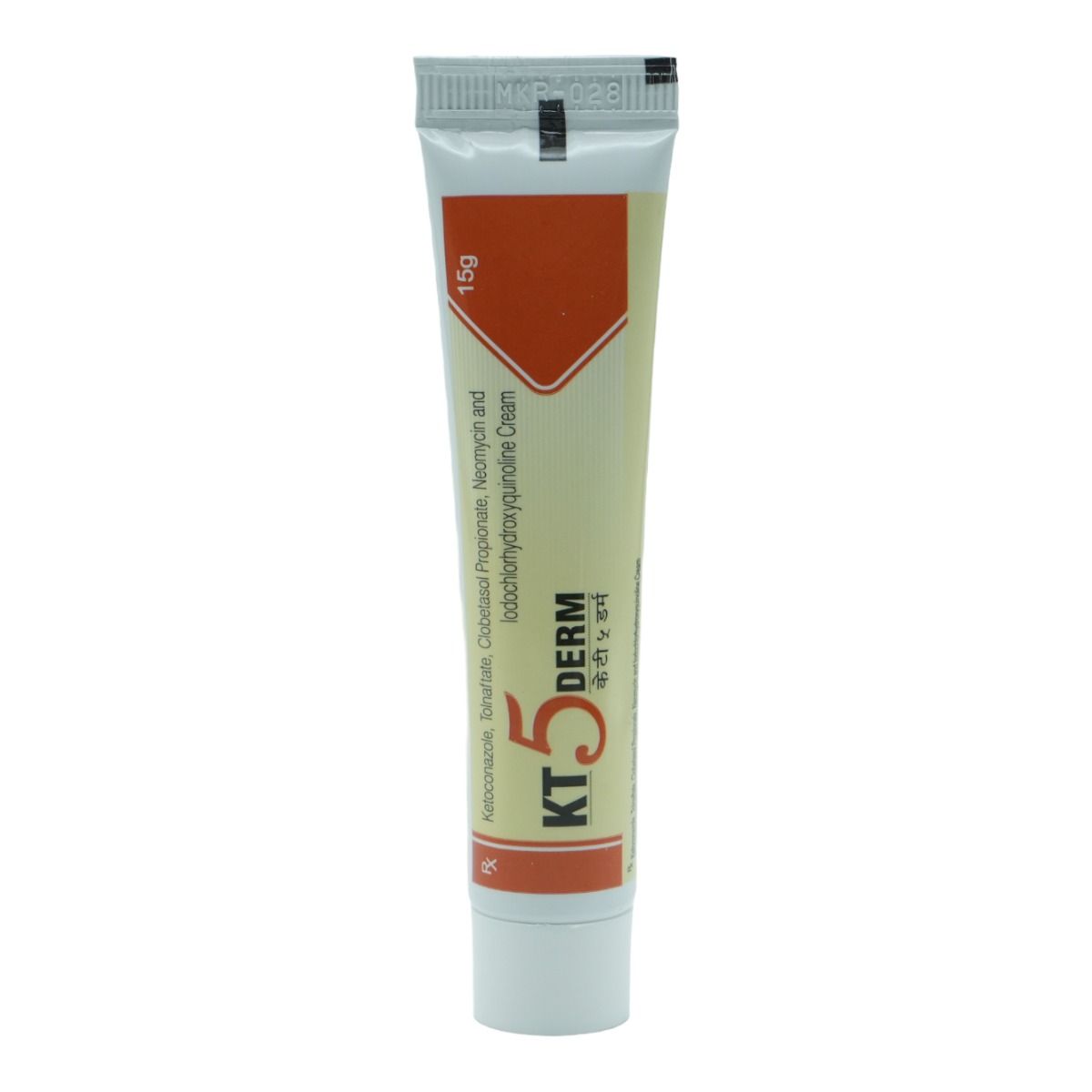Clioquinol
About Clioquinol
Clioquinol belongs to the class of medications called ‘antiinfectives’. It is used to treat skin infections such as eczema, jock itch, athlete’s foot, and ringworm. Eczema is characterized by red and itchy skin that occurs due to allergies. Athlete’s foot, jock itch, and ringworm are fungal infections closely related to each other. Athlete’s foot affects toes, jock itch affects the groin area, and ringworm affects skin or the scalp.
Clioquinol contains ‘clioquinol’ which is used in the treatment of skin infections. It is a broad-spectrum antiinfective that can treat bacterial, fungal, and protozoal infections. It blocks certain enzymes that are essential for the growth of the infectious organisms, thus leading to a decrease in infection and improving the symptoms.
Clioquinol is available for external or topical use in the form of cream, lotion, and ointment. Your doctor will decide what dose should be taken based on your health condition. In general, it is not advised to take for more than one week. Consult your doctor if your condition doesn’t improve or worsen after the treatment. Common side-effects of Clioquinol are redness, itching, burning sensation, irritation, and swelling at the site of the application of the medication. Inform your doctor if these side-effects do not disappear or get worsen.
Before taking Clioquinol, tell your doctor and pharmacist if you are allergic to clioquinol or any other drugs. Tell your doctor about the prescription and nonprescription drugs you are taking, including vitamins and herbal products. Inform your doctor if you have any thyroid problems. Tell your doctor if you are pregnant, planning to become pregnant, or are breastfeeding.
Uses of Clioquinol
Medicinal Benefits
Clioquinol contains ‘clioquinol’ used to treat skin infections. It is a broad-spectrum antiinfective agent. It can inhibit the growth of infectious organisms by regulating the DNA replication process. It blocks certain enzymes that are essential for this process. Clioquinol can improve symptoms of skin infections effectively within one week after its use.
Directions for Use
Storage
Side Effects of Clioquinol
Like any other medicines, Clioquinol can also cause side-effects such as redness, itching, burning or stinging sensation, irritation, and swelling at the site of the application of the medication. These symptoms usually go away without treatment. However, consult a doctor immediately if these side-effects persist or worsen over time.
Drug Warnings
Clioquinol should not be used for more than one week. Inform your doctor if the skin infection doesn’t improve or worsen after the course of treatment. Do not apply any cosmetic products on the infected skin unless advised by your doctor. Also, it is not advised to use in large areas of open skin lesions.
Drug Interactions
Drug-Drug Interactions: Clioquinol may interact with the antiepileptic drug (vigabatrin) and cause unwanted effects.
Drug-Food Interactions: No interactions found.
Drug-Disease Interactions: Clioquinol should be used with caution in patients with ocular toxicity (damage to the eye), neurotoxicity (damage to the brain), and thyroid dysfunction.
Drug-Drug Interactions Checker List:
Safety Advice

Alcohol
cautionIt is recommended to limit alcohol intake until the skin infection is completely treated.

Pregnancy
cautionClioquinol is a category B medicine. It should be used in pregnant women only when required. Your doctor will weigh the benefits and any potential risks before prescribing it to you.

Breast Feeding
cautionClioquinol should be used in breastfeeding only when prescribed by your doctor. If you are applying Clioquinol on breasts, your doctor may advise you to stop breastfeeding until the completion of the course of therapy.

Driving
safe if prescribedClioquinol may not affect your ability to drive.

Liver
cautionClioquinol should be used in patients with liver diseases only when prescribed by a doctor. Your doctor will weigh the benefits and any potential risks before prescribing it to you.

Kidney
cautionClioquinol should be used in patients with liver diseases only when prescribed by a doctor. Your doctor will weigh the benefits and any potential risks before prescribing it to you.

Children
cautionClioquinol should be used in children below 12 years of age only when prescribed by a doctor.
Habit Forming
Diet & Lifestyle Advise
- Consume a healthy diet that contains fresh fruits and vegetables.
- Do not wear tight-fitting clothes. Prefer breathable fabrics such as cotton.
- Protect your skin from the sun while going outdoors.
- Avoid strong soaps or detergents as they may act as irritants to the skin.
Special Advise
It is advised to consult a 'dermatologist' for the treatment of any skin related problems.
Patients Concern
Disease/Condition Glossary
Eczema: Eczema, also called atopic dermatitis, is a condition in which red and itchy rashes are seen on the skin, especially on the arms. It occurs due to allergens such as pollen, any foods, or other irritants such as soap.
Athlete’s foot: Athlete’s foot, also called tinea pedis, is characterized by an itchy and scaly rash that usually affects the area between the toes. It is commonly seen in people whose feet become sweaty due to tight-fitting shoes.
Jock itch: Jock itch, also called tinea cruris, usually affects the genital area, inner thighs, and buttocks. It occurs due to wearing tight-fitting clothes.
Ringworm: Ringworm, also known as dermatophyte infection, is characterized by the presence of ring-like lesions on the skin or scalp. It is a highly contagious infection that spread by skin-to-skin contact with an infected animal or object.
FAQs
Clioquinol is used to treat skin infections such as eczema, jock itch, athlete's foot, and ringworm.
Clioquinol contains 'clioquinol' which is an anti-infective drug. It stops the growth of infective organisms by interfering with the DNA replication process and reduces the infection.
Clioquinol is used in the treatment of skin infections such as eczema, jock itch, athlete’s foot, and ringworm. Eczema is an allergic reaction, whereas jock itch, athlete's foot, and ringworm are fungal skin infections.
Common side-effects of Clioquinol are redness, itching, burning sensation, irritation, and swelling at the site of the application of the medication. These side-effects usually do not require medical attention.
Clioquinol should not be used for more than one week. However, if the skin condition does not improve, consult your doctor immediately.
If you miss a dose, apply the medication as soon as possible. However, if it is almost time for your next dose, skip the missed dose, and apply the next dose of medication at the regular time.




